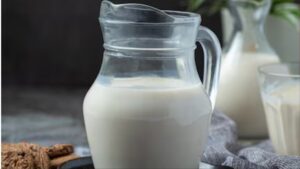
Despite a slight recovery in European Union raw milk prices, Latvian dairy farmers continue to grapple with dire financial challenges, teetering on the brink of bankruptcy.
Even neighboring Baltic countries present a more optimistic picture, with farmers in Lithuania and Estonia fetching €43 per 100 kg of raw milk. The disparity is even starker in Poland, where average farmgate prices reached €47.43 in January.
The impact of these low prices is significant, with Latvian milk farmers earning €66 million less than their counterparts in Estonia and €87 million less than those in Poland, as remarked by Janis Miezitis, Chairman of the Latvian Livestock Industry Association (LSA).
The situation is compounded by the looming threat of bankruptcies across the sector. Most Latvian dairy processors operate at a loss or near breakeven, with little prospect for tariff revisions in the foreseeable future. This could exacerbate pressure on the supply chain, as highlighted by market analysts.
Several factors contribute to the industry’s woes, including surging energy prices, expensive logistics, and packaging costs. Additionally, Latvian retailers’ preference for cheaper imported products reduces demand for domestically produced goods.
In response to these challenges, Latvian milk farmers are advocating for state support. The LSA has urged authorities to increase subsidies for milk farms from €25,000 to €125,000 per farm. Farmers also emphasize the need for higher limits on duty-free diesel fuel imports, crucial for year-round operations.
A recent report by the Latvian Ministry of Rural Affairs attributes the crisis in the agricultural sector to a complex interplay of environmental, political, and economic factors. In 2023 alone, Latvian farmers incurred losses amounting to €412 million, with losses in cattle farming alone reaching €129 million.



